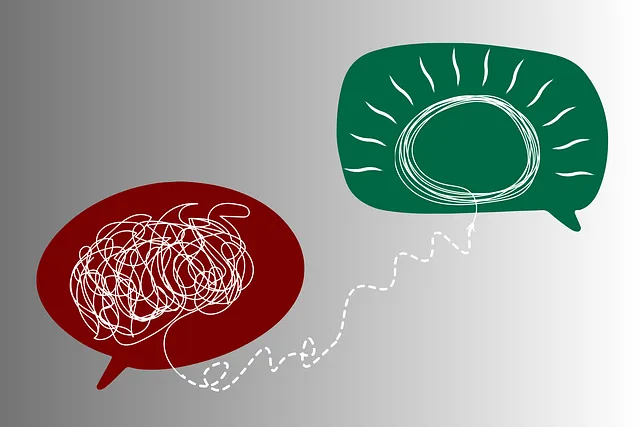Mental wellness programs, inspired by the Centennial Kaiser Permanente behavioral health number, offer multi-faceted support using therapeutic techniques like cognitive-behavioral therapy and mindfulness. Evaluating these programs through quantitative assessments and qualitative feedback is essential to understand their effectiveness. The Centennial Kaiser Permanente initiative provides timely interventions, promotes self-care routines, and ensures cultural competency in mental health care. Evaluation methods include tracking changes in mental health status, integrating compassion cultivation practices, and measuring psychological well-being. Implementing evidence-based stress reduction methods, tailored to unique needs, enhances overall well-being and job performance within the organization.
Mental wellness programs have become a cornerstone of modern healthcare, with organizations like Centennial Kaiser Permanente leading the charge in accessible behavioral health services. This article delves into the evaluation methods that assess the impact and effectiveness of these initiatives. From understanding the fundamentals of mental wellness programs to exploring the game-changing Centennial Kaiser Permanente Behavioral Health Number, we offer a comprehensive overview. Additionally, we discuss best practices for implementation and measurement, providing valuable insights for fostering successful mental wellness initiatives.
- Understanding Mental Wellness Programs: A Comprehensive Overview
- The Centennial Kaiser Permanente Behavioral Health Number: Unlocking Access to Care
- Evaluation Methods: Assessing the Impact and Effectiveness of Programs
- Best Practices for Implementing and Measuring Successful Mental Wellness Initiatives
Understanding Mental Wellness Programs: A Comprehensive Overview

Mental wellness programs are designed to support individuals’ emotional, psychological, and social well-being, encompassing a broad spectrum of interventions aimed at enhancing resilience, reducing symptoms of mental health disorders, and promoting healthy coping mechanisms. These programs often include various therapeutic approaches, such as cognitive-behavioral therapy, mindfulness practices, stress management workshops, and compassion cultivation techniques, like those offered by the Centennial Kaiser Permanente behavioral health number.
The evaluation of these initiatives is crucial for understanding their effectiveness in improving mental health outcomes. Methodologies may involve quantitative assessments, qualitative feedback from participants, or a combination of both. By examining changes in symptoms, moods, and overall well-being before and after program participation, researchers and practitioners can gain valuable insights into which components are most beneficial. This knowledge informs the refinement of programs like Stress Management Workshops Organization’s offerings, ensuring they remain relevant and impactful in fostering mental wellness.
The Centennial Kaiser Permanente Behavioral Health Number: Unlocking Access to Care

The Centennial Kaiser Permanente Behavioral Health Number serves as a powerful tool, unlocking access to essential mental wellness resources for patients. By providing a dedicated line or hotline, this initiative ensures individuals can readily connect with healthcare professionals and support services tailored to their needs. This direct access is pivotal in fostering timely interventions and promoting self-care routine development for better mental health.
Centennial Kaiser Permanente’s focus on behavioral health integrates comprehensive care, including training for healthcare providers on cultural competency. Such training is crucial in addressing diverse patient populations’ unique challenges. By empowering medical professionals with the skills to offer anxiety relief and culturally sensitive support, the program enhances overall community well-being.
Evaluation Methods: Assessing the Impact and Effectiveness of Programs

Evaluation methods play a pivotal role in understanding the impact and effectiveness of mental wellness programs, such as those offered by Centennial Kaiser Permanente behavioral health services. These methods extend beyond simple satisfaction surveys to encompass a multi-faceted approach that delves into tangible improvements in participants’ lives. One powerful tool is the Risk Assessment for Mental Health Professionals, which helps track changes in clients’ mental health status over time.
Integrating Compassion Cultivation Practices and Mindfulness Meditation into evaluation frameworks can provide deeper insights into users’ well-being. These practices, when incorporated into program designs, offer not just a means of assessment but also potential interventions. By regularly measuring participants’ psychological and emotional states, organizations like Centennial Kaiser Permanente can ensure their programs meet the evolving needs of their clients, fostering continuous improvement in mental wellness outcomes.
Best Practices for Implementing and Measuring Successful Mental Wellness Initiatives

Implementing and measuring mental wellness initiatives requires a strategic approach, especially within organizations like Centennial Kaiser Permanente, focusing on behavioral health under their care. Best practices involve integrating evidence-based stress reduction methods tailored to the unique needs of employees and patients. This may include mindfulness training, cognitive-behavioral therapy techniques, or peer support networks, ensuring accessibility and confidentiality.
A robust evaluation framework is key to gauging success. Tracking improvements in mental wellness outcomes, such as reduced symptoms of anxiety or depression (as measured by validated scales), can demonstrate program effectiveness. Additionally, assessing changes in self-reported mood management skills and employee satisfaction with support resources provides valuable insights into the initiative’s impact on overall well-being and job performance.
Mental wellness program evaluation is a multifaceted process, requiring a combination of qualitative and quantitative methods. As demonstrated by the Centennial Kaiser Permanente Behavioral Health Number’s success, unlocking access to care is a pivotal step towards enhancing mental health outcomes. By implementing best practices and adopting innovative measurement techniques, organizations can effectively assess and improve their mental wellness initiatives. This ensures that resources are allocated efficiently, benefiting individuals in need and fostering a healthier, more resilient community.






